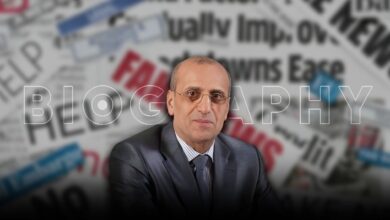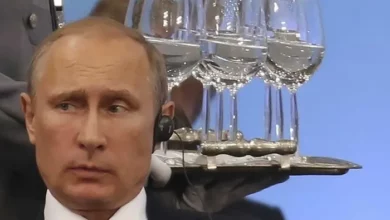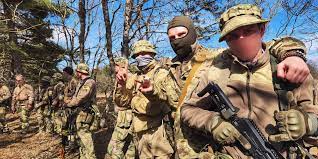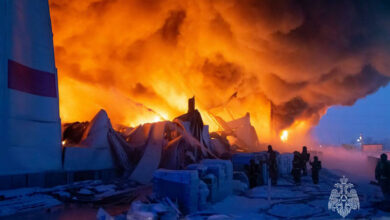German Khan: Biography of Russian Oligarch and Alfa Group Founder
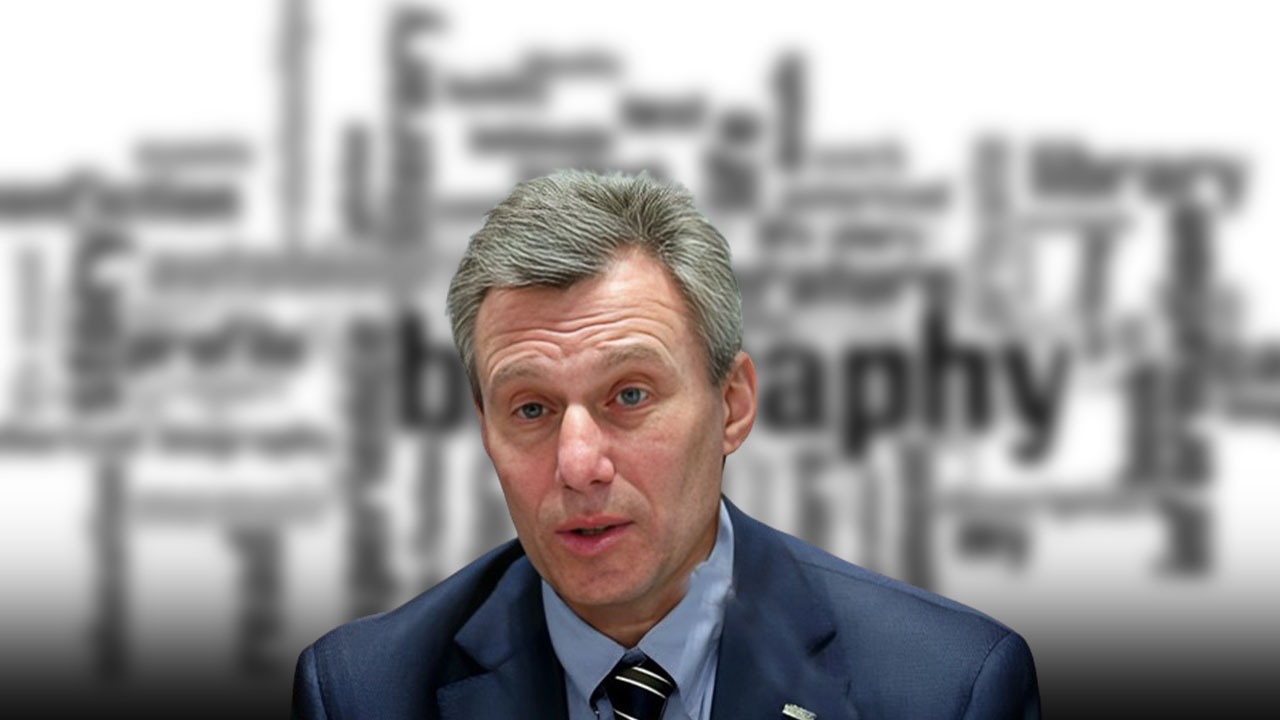
German Khan, born on October 24, 1961, in Kyiv, Ukraine, to Ukrainian Jewish parents, is a Ukrainian–Russian businessman. His life story from college to becoming a billionaire entrepreneur and co-founder of LetterOne, a global holding company, is quite remarkable. Khan is also known for philanthropy, contributing mainly to causes like the Genesis Philanthropy Group and the European Jewish Fund.
Early Life and Education
German Borisovich Khan‘s journey began with graduation from college pursuing manufacturing and technology at 18. He began working as a mechanic at the Kyiv Experimental and Development Plant for Non-Standard Equipment. Along with that, Khan pursued education at the Moscow Institute of Steel and Alloys, specializing in ferrous metal casting.
Entrepreneurial Career
In 1989, Khan went into entrepreneurship by founding a cooperative business, Alexandrina, focusing on tailoring. His significant breakthrough came in 1990 when he joined Alfa-Eco, part of Alfa Group, as Chief of Wholesale, marking the beginning of his ascent into the business world.
Alfa Group and Tyumen Oil Company
German Khan‘s association with Alfa Group proved important as he held various executive positions. The acquisition of Tyumen Oil Company in 1997, where Khan joined the Board of Directors, further solidified his standing in the business landscape. Alfa Eco‘s rapid growth under Khan’s leadership positioned it as one of Russia’s leading investment companies.
Overview of Alfa Group
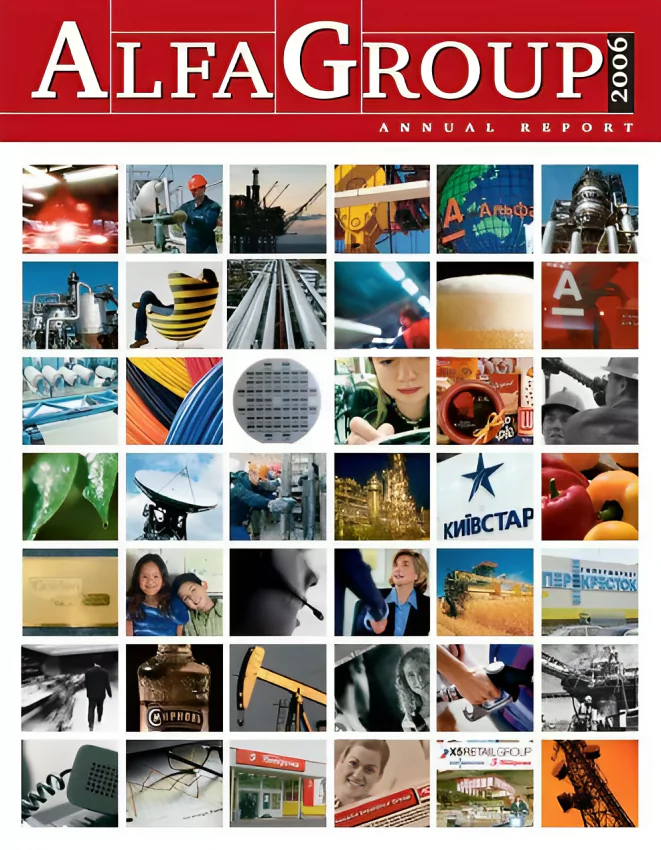
Alfa Group stands as a privately held investment union with diverse interests across multiple industries. Among its notable sectors of involvement are oil and gas, commercial and investment banking, asset management, insurance, retail trade, telecommunications, water utilities, and special situation investments.
Founded in 1989 under the name Alfa-Eco, the group originated through the collaboration of Israeli-Russian businessman Mikhail Fridman and US/(former USSR) businessman Anatoly Potik. The central holding company, situated in Gibraltar, is looked after by Franz Wolf, the son of Markus Wolf.
Alfa Group holds ownership stakes in a range of companies and joint ventures, displaying a broad portfolio that includes Alfa-Bank, Alfa Capital Management, Alfa Capital Partners, AlfaStrakhovanie Group, Altimo, X5 Retail Group, A1 Group, Rosvodokanal Group, and LetterOne Group. As of 2012, the group reported a substantial revenue of US$16.613 billion and held total assets amounting to US$82.598 billion.
Overview of Tyumen Oil Company
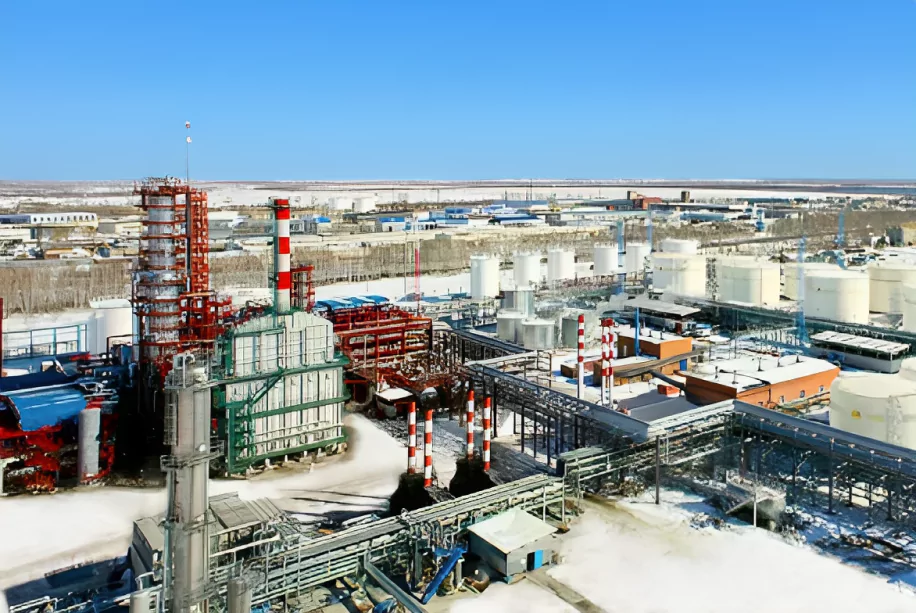
The Tyumen Oil Company, commonly recognized as TNK-BP, is a vertically integrated Russian oil enterprise with its headquarters in Moscow. Known as one of the foremost oil producers in Russia and counted among the top ten private oil entities globally, TNK-BP holds a significant footprint in the energy sector. In 2013, Russian oil giant Rosneft successfully acquired the company, marking a pivotal moment in its corporate history since its establishment in 2003.
TNK-BP‘s operations cover a well-diversified portfolio that goes across both upstream and downstream sectors in Russia and Ukraine. With a main focus on upstream activities, the company strategically positions its operations in Siberia and the Volga-Urals region. Renowned for its substantial oil and gas reserves, TNK-BP has consistently shown robust financial performance, generating substantial profits even amidst challenging periods marked by declining oil prices.
The company has not been without its share of corporate challenges, having engaged in various disputes. In a strategic move aimed at enhancing growth prospects, TNK-BP underwent complete privatization in 2001. The action was executed to fortify its standing in the industry and pave the way for sustained development.
TNK-BP Deals and Business Expansion
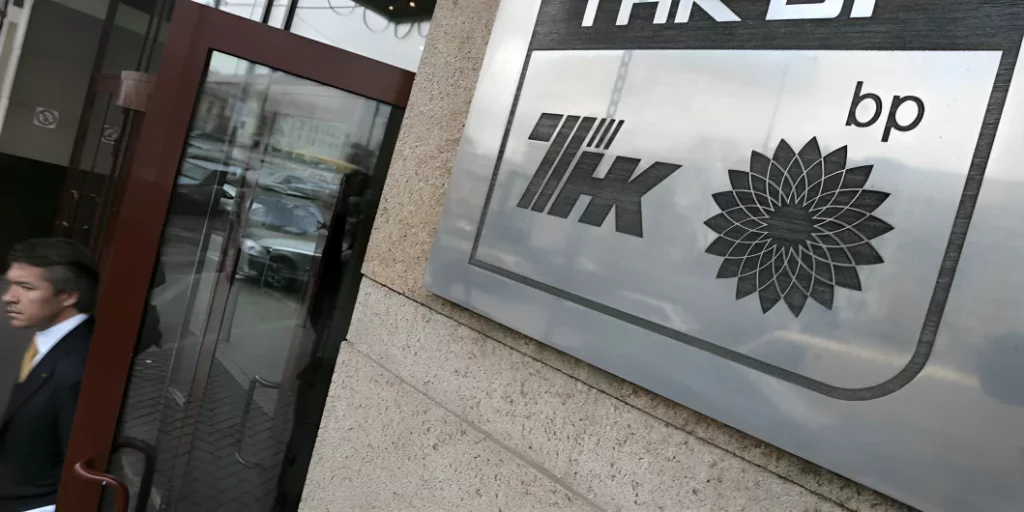
One of German Khan‘s most notable business projects was acquiring shares in TNK-BP, one of the largest and most successful deals in Russian business history. The move contributed to Khan’s influence in Russia’s oil and gas industry. Over the years, Khan has continued to invest consistently in diverse sectors like telecommunications, oil and gas, banking, and retail.
Philanthropy and Charitable Initiatives
Khan is recognized for his philanthropic endeavours, supporting organizations like the Genesis Philanthropy Group and the European Jewish Fund, and working towards the promotion of Judaism in Russia and the global Jewish diaspora. Notably, German Khan is the co-founder of the Babyn Yar Holocaust Memory Foundation, reflecting a personal connection to the tragic events at Babyn Yar where his relatives lost their lives.
What is the Babyn Yar Holocaust Memory Foundation?
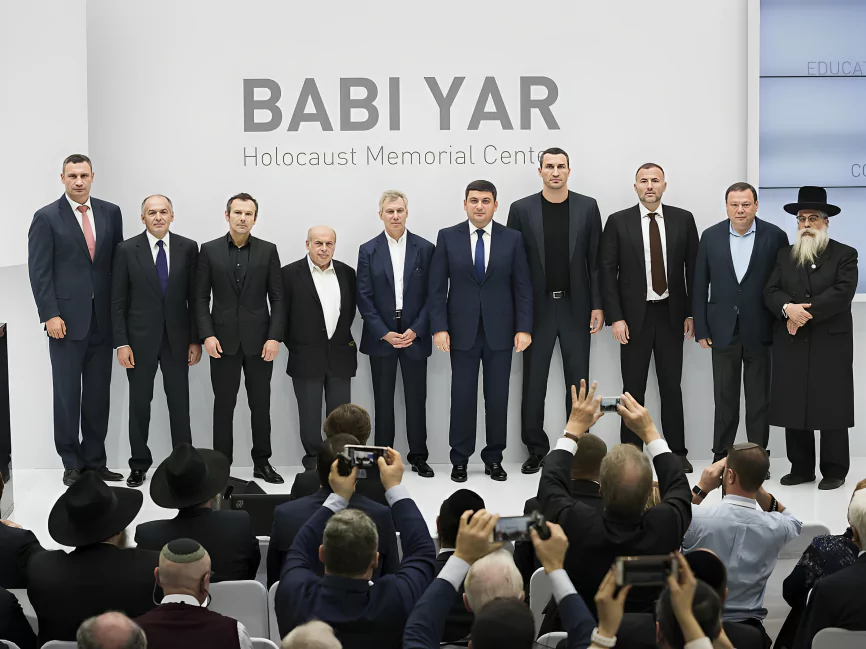
The Babyn Yar Holocaust Memorial Center, officially recognized as the Foundation and Babyn Yar Holocaust Memorial Center, stands as an esteemed educational institution situated in Kyiv, Ukraine.
Established in 2016, the Foundation and Babyn Yar Holocaust Memorial Center have dedicated themselves to meticulous documentation, comprehensive explanations, and heartfelt commemorations of the tragic Babi Yar shootings that occurred in September 1941. The devastating event saw a senseless loss of between 70,000 and 100,000 lives, including the near-complete decimation of Kyiv’s Jewish population by the Nazis.
At its core, the centre strives to expand and perpetuate the collective memory of the Holocaust, with a steadfast commitment to preventing the recurrence of such heinous atrocities. Notably, it is in the process of constructing the inaugural modern Holocaust museum in Eastern Europe, concurrently establishing a centre for the in-depth study of this historical tragedy.
In addition to its memorial and educational initiatives, the Babyn Yar Holocaust Memorial Center actively engages in humanitarian aid and social assistance programs targeting Holocaust survivors, righteous individuals, and Ukrainian citizens impacted by war. Remarkably, this independent non-governmental organization plays a crucial role in fostering resilience and support within affected communities.
Assuming the position of CEO in 2023, Maksym Rabinovych leads a dedicated team of professionals at the helm of the centre. The supervisory board, presided over by the esteemed Natan Sharansky, also boasts the notable presence of German Khan, who not only co-founded the centre but actively contributed as a board member.
Central to the realization of the centre’s vision are its key benefactors, Russian Jewish oligarchs Mikhail Fridman and German Khan, who have played pivotal roles as main donors. Their commitment underscores the importance of collective responsibility in preserving the memory of the Holocaust and fostering a resilient society against the forces that drive such historical tragedies.
What are the Charity Projects and Initiatives made by German Khan?
Khan’s involvement in various charity projects is extensive, including the Life Line Fund, the European Jewish Fund, the Russian Jewish Congress, and the Babyn Yar Memorial Foundation. These organizations aim to address diverse social and cultural needs, showcasing Khan’s commitment to making a positive impact beyond the business realm.
Personal Life and Family
German Khan is a family man, married with three children – two daughters and a son. He emphasizes the importance of sports for spiritual and physical development. Khan, a football enthusiast, believes in the positive influence of sports on individuals.
German Khan’s Net Worth
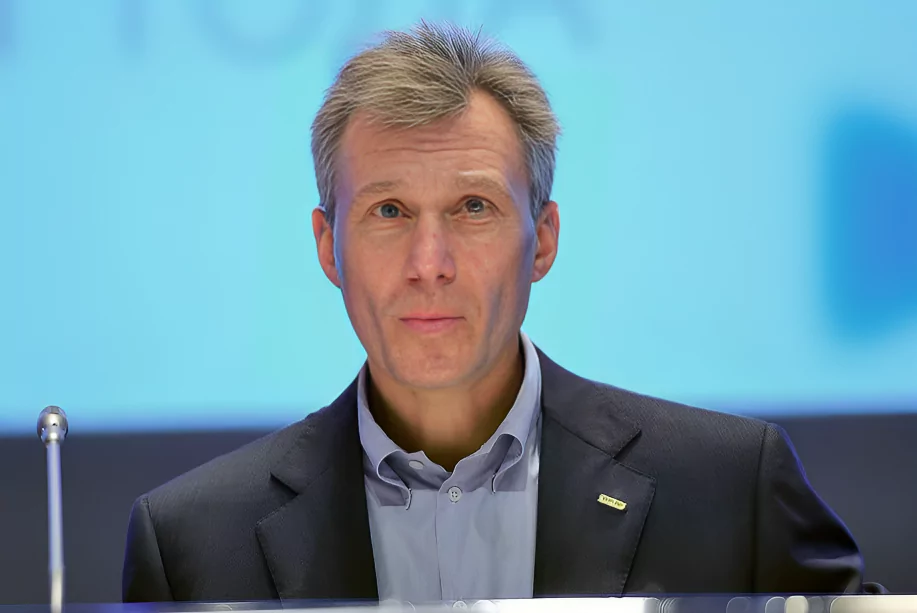
| Year | Net Worth (in billions) |
| 2014 | 11.3 Billion |
| 2015 | 9.5 Billion |
| 2016 | 8.7 Billion |
| 2017 | 9.3 Billion |
| 2018 | 9.8 Billion |
| 2019 | 9.7 Billion |
| 2020 | 8.5 Billion |
| 2021 | 10.1 Billion |
| 2022 | 7.8 Billion |
| 2023 | 8.2 Billion |
Controversies and Crimes
Early Suspicions and Moscow Arbitration Court Verdict (1999)
In 1999, journalist Oleg Lurie raised suspicions of illegal activity by German Khan, prompted by a request from State Duma Security Committee Chairman Ilyukhin. The scrutiny has focused on Alfa-Bank and Alfa-Eco, with Khan’s leadership facing allegations of involvement in drug-related operations. The Moscow Arbitration Court later found the disseminated information to be false, ultimately discrediting its business reputation.
Legal Assessment and Charges (2003)
In 2003, State Duma member Vladimir Yudin sought a legal assessment from the Prosecutor General concerning TNK management’s actions. Legal proceedings in the Southern District of New York implicated TNK heads and owners, including Semyon Kukes, Leonard Blavatnik, Viktor Vekselberg, Joseph Bakaleinik, and German Khan. Charges ranged from money laundering to illegal money transactions, extortion, and threats of physical harm.
Brochure Allegations and Fraudulent Activities (2005)
The International Union of Veterans of the Armed Forces and Law Enforcement Agencies issued a brochure in 2005, titled “Criminal Law Assessment of the Activities of Alfa Group.” The document accused Alfa Group co-owners Mikhail Fridman, Alexei Kuzmichev and German Khan, along with Leonard Blavatnik and Viktor Vekselberg, of fraudulently seizing a 40% stake in TNK. Allegations included the use of transfer prices, tax evasion, fraudulent control over Nizhnevartovskneftegaz, and the artificial bankruptcy of Chernogorneft.
Corruption Accusations and London Court Proceedings (2012)
In 2012, Igor Lazurenko, former head of TNK-BP’s logistics department, accused TNK-BP director German Khan of bribing officials. Testifying in a London court, Lazurenko claimed Khan was involved in corrupt practices, including bribing senior government officials and unlawfully transferring hundreds of millions of dollars.
Inclusion in Russian Dossiers and Defamation Attempts (2017)
As the co-owner of Alfa Bank, Khan was featured in the Russian dossier on Donald Trump published by BuzzFeed in 2017. The dossier alleged close ties between Khan, along with Fridman and Aven, and Russian President Putin. Attempts by the businessman to challenge the dossier’s author for defamation in an American court proved unsuccessful.
Listing on the Kremlin List (2018)
In January 2018, the US Treasury included German Khan on the Kremlin list, alongside other well-known Russian businessmen.
LetterOne Details and Controversies
LetterOne is a Luxembourg-based investment firm founded in 2013 by German Khan, Mikhail Fridman, Petr Aven, Alexei Kuzmichev, and Andrei Kosogov.
The firm has faced legal challenges over its ties to influential individuals in Russia.
Some key aspects of LetterOne include:
- The firm was established after the founders launched Alfa Group, one of the largest groups in Russia.
- LetterOne has invested in various businesses, including Octane Capital, where it has invested more than £100 million ($120 million) in recent years.
- The company faced legal disputes, such as the case against Pamplona Capital Management, which decided to liquidate funds linked to LetterOne to sever ties with the sanctioned Russian tycoon.
- LetterOne has also been connected to Teneo, a US corporate consulting firm, with which it had a contract that paid Teneo over $1 million for consulting services.
In recent years, LetterOne has faced challenges due to sanctions against its founders.
Sanctions on German Khan
The decision to impose sanctions on German Khan is rooted in his role within the Russian business landscape, especially in sectors that contributed to the revenue of the Russian government. Khan is a major player in the Alfa Group Union, holding stakes in entities like Alfa Bank, which is a key contributor to Russia’s tax base. His friendship with Alfa Bank’s co-owners, Mikhail Fridman and Petr Aven, highlights their considerable influence within the country.
The reasons behind the sanctions become more complex when considering Khan’s alleged involvement in activities linked to the annexation of Crimea and the destabilization of Ukraine. As a well-known figure in Russia, his close ties with Vladimir Putin portray another sense of doubt. This connection is evident in the charitable efforts of Putin’s eldest daughter, Maria, who spearheaded the Alfa Bank-funded project, Alfa-Endo.
The decision to impose sanctions is not merely a response to Khan’s business activities but is also influenced by the perceived loyalty of Alfa Group to the Russian authorities. In return, Putin has provided political support for Alfa-Group’s foreign investment initiatives.
In essence, the sanctions are a result of the relationship between business and politics in Russia, with German Khan serving as a focal point.
Further sanction details
| Date | Place of Sanctions |
| 14/03/2023 | European Union |
| 15/03/2022 | United Kingdom |
| 11/08/2023 | USA |
| 19/04/2022 | Canada |
| 16/03/2022 | Switzerland |
| 06/04/2022 | Australia |
| 19/10/2022 | Ukraine |
| 12/10/2022 | New Zealand |
Summary
German Khan, born in Kyiv, Ukraine, in 1961, is a prominent Ukrainian–Russian entrepreneur and one of the co-founders of LetterOne, a distinguished global holding company. Khan’s entrepreneurial journey began in the realm of manufacturing, and he gained significant recognition when he joined Alfa-Eco in 1990, subsequently emerging as a key figure within the influential Alfa Group. His pivotal role in the acquisition of Tyumen Oil Company (TNK-BP) solidified his stature in the Russian business landscape. By 2012, Alfa Group, with diverse interests spanning various sectors, reported substantial revenue and assets.
Beyond his business endeavours, Khan is widely acclaimed for his philanthropic initiatives, most notably co-founding the Babyn Yar Holocaust Memorial Center. His charitable pursuits extend to supporting organizations such as the Genesis Philanthropy Group and the European Jewish Fund. However, Khan has not been immune to controversies, including legal challenges and corruption accusations, leading to sanctions imposed by the European Union, United Kingdom, United States, Canada, Switzerland, Australia, Ukraine, and New Zealand as of 2023. The sanctions stem from Khan’s business and political ties, highlighting the interplay between Russian business figures and the government.




